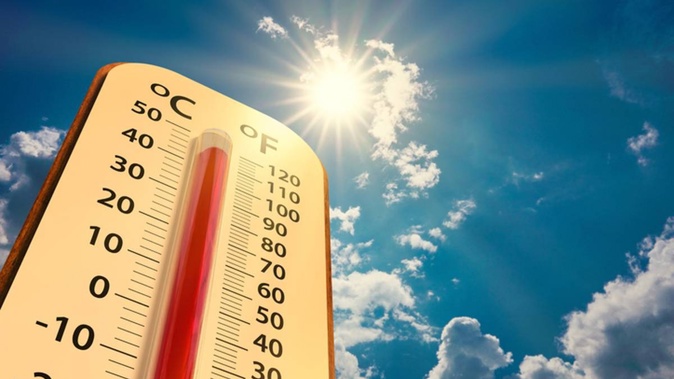
Last year was New Zealand’s second-warmest in recorded history - and very nearly again its hottest - with Niwa citing La Nina, warm oceans and global climate change as driving factors.
The institute’s just-issued climate summary for 2023 comes just hours after international agencies announced last year was also a record-breaker for our fast-warming planet.
For New Zealand, the year’s nationwide average temperature came in at 13.61C - just behind 2022′s record reading of 13.76C, slightly above 2021′s average of 13.56C, and 0.87C warmer than the 1991-2020 baseline.
“May and September were both the warmest on record, at an astounding 1.1C and 2C above their 1991-2020 monthly averages, respectively,” Niwa reported in its summary.
In contrast, a chillier August proved the first month since May 2017 to finish up with below-average temperatures - largely due to El Niño’s arrival after three warm and wet years of La Niña.
The year brought no shortage of other startling statistics.
The first six months of 2023 was New Zealand’s second warmest start to a year, but easily the wettest for a host of centres, with Kaikohe, Whangārei, Tauranga, Napier, Gisborne and multiple locations in Auckland all receiving a year’s worth of rainfall.
Even by the end of January, Auckland had already seen nearly half its average annual rainfall - and nearly nine times what it typically gets in that month - with much of it coming in the disastrous Anniversary Weekend deluge.
On January 27, Auckland’s Albert Park was drenched with 280mm of rain in under 24 hours and 211mm in under six hours.
/cloudfront-ap-southeast-2.images.arcpublishing.com/nzme/V4JGAW7PTVHIRBPMCDMZ3URD5Q.JPG)
Just a fortnight later, ex-Tropical Cyclone Gabrielle brought the country’s costliest weather disaster in history, leaving swathes of Hawke’s Bay underwater, East Coast beaches covered in debris and 11 people dead.
And as relentless rain saturated the north, seas at the other end of New Zealand warmed to reach some of the widest anomalies observed there.
That included a marine heatwave that pushed Fiordland’s waters to 5C above average, heaping more pressure on sea sponges that had already just suffered a mass bleaching event.
Niwa said these higher sea surface temperatures had big influences on 2023′s “exceptional” warmth, as did La Nina and an El Nino, ocean heat in the West Pacific and climate change, with New Zealand’s long-term temperature rising at a rate of 1.17C per century.
Earlier this week, climate scientist Professor Jim Salinger released data showing it had been the wider New Zealand region’s warmest 12 months in just over 150 years of records.
Globally, the average temperature for 2023 came in at an unprecedented 14.98C, European climate agency Copernicus calculated.
“It was record-breaking for seven months. We had the warmest June, July, August, September, October, November, December,” Copernicus deputy director Samantha Burgess said.
“It wasn’t just a season or a month that was exceptional. It was exceptional for over half the year.”
And January 2024 was on track to be so warm that for the first time, a 12-month period would exceed the symbolic warming threshold of 1.5C above pre-industrial times.
Scientists have repeatedly said that Earth would need to average 1.5C of warming over two or three decades to be a technical breach of the threshold.
Burgess said that goal had “to be [kept] alive because lives are at risk and choices have to be made.”
“And these choices don’t impact you and I but they impact our children and our grandchildren.”
Jamie Morton is a specialist in science and environmental reporting. He joined the Herald in 2011 and writes about everything from conservation and climate change to natural hazards and new technology.
Take your Radio, Podcasts and Music with you









